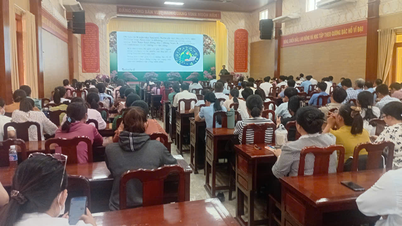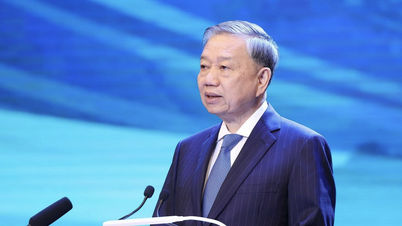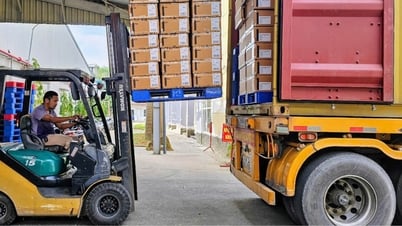From February 18, 2025, goods imported through e-commerce platforms with a value of less than 1 million VND will no longer be exempt from import tax and value added tax.
According to Decision 01/2025 dated January 3, 2025 of the Prime Minister , completely abolishing Decision No. 78/2010/QD-TTg dated November 30, 2010 on the value of imported goods sent via express delivery services that are exempt from tax, from February 18, 2025, goods with a value of less than 1 million VND when sent via express delivery services will be subject to import tax and value added tax.
This policy change comes in the context of e-commerce strong development, small value imported goods increased significantly. This caused budget loss, creating unfairness between imported goods and domestically produced goods.

In 2024, although the global and regional economies still face many challenges, Vietnam's e-commerce continues to maintain an impressive growth rate, surpassing the 25 billion USD mark, accounting for about 9% of the total retail sales of goods and consumer service revenue nationwide.
According to the assessment of the Ministry of Industry and Trade , the current e-commerce market size accounts for 2/3 of the country's digital economic value, helping Vietnam enter the Top 10 countries with the fastest e-commerce growth rate in the world, creating momentum for economic development and leading digital transformation in businesses.
Metric's 2024 Online Retail Market Overview Report and 2025 Forecast shows that 2024 will witness strong growth in imported goods with more than 324.1 million products imported into Vietnam, generating VND 14,200 billion in revenue, up 37.9% and 42.9% respectively over the same period. In 2024, the low-cost segment of less than VND 200,000 will record strong growth in both revenue and market share, increasing by about 3.7% market share.
In order to ensure fairness between imported goods and domestically produced and traded goods, from February 18, 2025, goods worth less than 1 million VND when sent via express delivery service are no longer exempt from import tax and value added tax.
Before this regulation, many predicted that cross-border sales prices on the platform would increase due to the additional 10% VAT and import tax, and customers would be the ones to pay for this increase. However, it is also possible that Chinese sellers will try to reduce costs or accept a reduction in profits to retain customers.
Discussing this issue, Mr. Hoang Ninh - Deputy Director Department of E-commerce and Digital Economy (Ministry of Industry and Trade) - comments: This regulation may make the price of goods imported from outside Vietnam no longer attractive because the price is too competitive. This will encourage consumers to consider more carefully about imported goods when shopping, thereby increasing the demand for domestic goods, especially products of equivalent quality. This is an opportunity for domestic enterprises to improve their competitiveness and enhance product quality.
Source



























































































Comment (0)